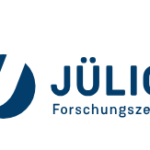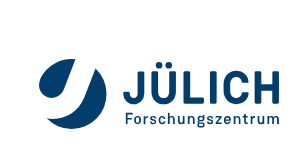
Website Forschungszentrum Jülich GmbH
Conducting research for a changing society: This is what drives us at Forschungszentrum Jülich. As a member of the Helmholtz Association, we aim to tackle the grand societal challenges of our time and conduct research into the possi- bilities of a digitized society, a climate-friendly energy system, and a resource-efficient economy. Work together with around 7,400 employees in one of Europe’s biggest research centers and help us to shape change!
The Ernst Ruska-Centre (ER-C) at Forschungszentrum Jülich is one of the world-leading electron microscopy centers with more than 15 electron microscopes. At the ER-C-3, the Structural Biology department of ER-C, we investigate the structural and molecular mechanism of membrane biology and push the development of cryo-EM-related methodology. Our main methods of investigation are single-particle electron cryo-microscopy (cryo-EM) as well as electron cryo-tomography (cryo-ET) that we are also developing to advance existing imaging technologies towards high-resolution structural biology. The ER-C-3 (https://sachse.fz-juelich.de/) uses a comprehensive electron microscopy approach to study the biological structures of membrane- associated protein complexes.
We are offering a
PhD Position – Method Development of Cryo- STEM Imaging
Your Job:
In close cooperation with experts in the development of methodologies in multidimensional STEM, new approaches for low-dose imaging at high contrast in cryo-EM are explored both theoretically and experimentally.
In this project, we aim to further develop the imaging capabilities based on scanning transmission electron microscopy (STEM), including differential phase contrast as well as ptychography, in order to apply them to vitrified biological specimens.
Your tasks in detail:
- Developing novel methods for the application of STEM methods to biological specimens
- Operating high-resolution electron microscopes with ice-embedded biological samples
- Performing image analysis to determine high-resolution cryo-EM structures of ice-embedded test specimens and in situ cellular samples
- Employing advanced imaging methods together with an interdisciplinary team of physicists and structural biologists
Your Profile:
- Master’s degree in biophysics, biochemistry, molecular or cell biology, or a related field
- Strong experimental skills in biophysics and molecular cell biology experiment design, including associated data analysis
- Prior knowledge of structural biology and/or light / electron microscopy techniques is of great advantage
- Strong communication skills and ability to work in an international and interdisciplinary team
Our Offer:
We work on the very latest issues that impact our society and are offering you the chance to actively help in shaping the change. We offer ideal conditions for you to complete your doctoral degree:
- The chance to work at one of the largest research centers in Germany with excellent scientific equipment and leading European computational resources, located on a green campus, and near the cultural centers Köln, Düsseldorf, and Aachen; the Jülich campus also hosts a vibrant (bio)physics, bioinformatics, and structural biology community
- Direct access to high-level EM infrastructure at the Ernst Ruska-Centre, including cryo-microscopes; the facility has been extended with state-of-the-art cryo-microscopes and FIB-SEMs of ThermoFisher Titan Krios, Talos Arctica, and Aquilos 2
- Access to outstanding wet-lab and sample preparation laboratories at the host institute
- Working in a dynamic team of researchers with backgrounds in different disciplines across biology, chemistry, physics, and informatics to advance cryo-STEM methods
- Excellent scientific and technical infrastructure
- The opportunity to participate on conferences and project meetings
- Continuous professional supervision by your scientific supervisor
- Extensive company health management
- Targeted services for international employees, e.g. through our International Advisory Service
- 30 days of annual leave and an attractive regulation for bridging days
- Further development of your personal strengths, e.g. through an extensive range of training courses; a structured program of continuing education and networking opportunities specifically for doctoral researchers via JuDocS, the Jülich Center for Doctoral Researchers and Supervisors: https://www.fz- juelich.de/en/judocs
The employment of doctoral researchers at Jülich is governed by a doctoral contract, which usually has a term of three years. Pay is in line with 65 % of pay group 13 of the Collective Agreement for the Public Service (TVöD-Bund) and additionally 60 % of a monthly salary as special payment (“Christmas bonus”). Further information on doctoral degrees at Forschungszentrum Jülich, including our other locations, is available at https://www.fz-juelich.de/gp/Careers_Docs.
In addition to exciting tasks and a collaborative working atmosphere at Jülich, we have a lot more to offer: https://go.fzj.de/benefits.
We welcome applications from people with diverse backgrounds, e.g. in terms of age, gender, disability, sexual orientation / identity, and social, ethnic, and religious origin. A diverse and inclusive working environment with equal opportunities, in which everyone can realize their potential, is important to us.
We look forward to receiving your application. The job will be advertised until the position has been successfully filled. You should therefore submit your application as soon as possible via our Online Recruitment System!
Questions about the Offer?
Please feel free to contact us via our contact form. Please note that for technical reasons we cannot accept applications via e-mail.
You can find helpful information on the application and selection process here. You can also find answers to frequently asked questions in our FAQs.
www.fz-juelich.de
